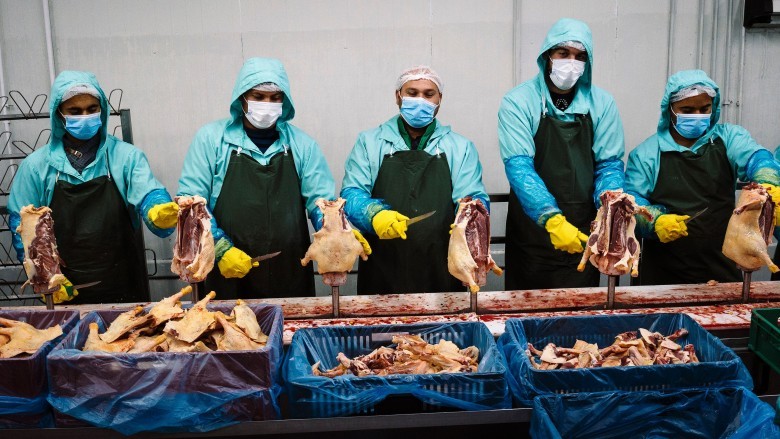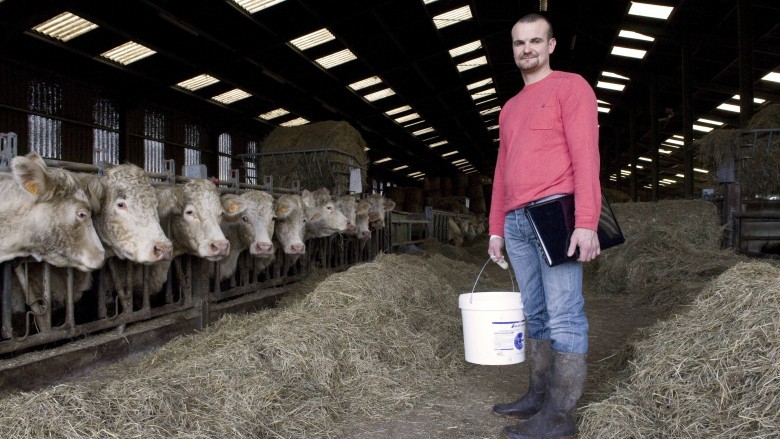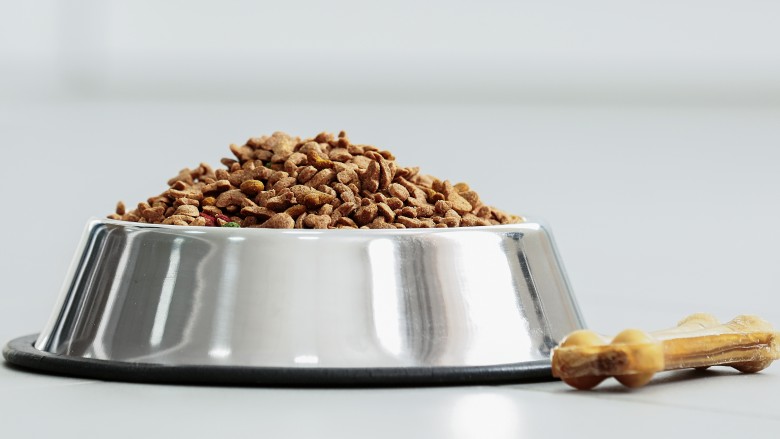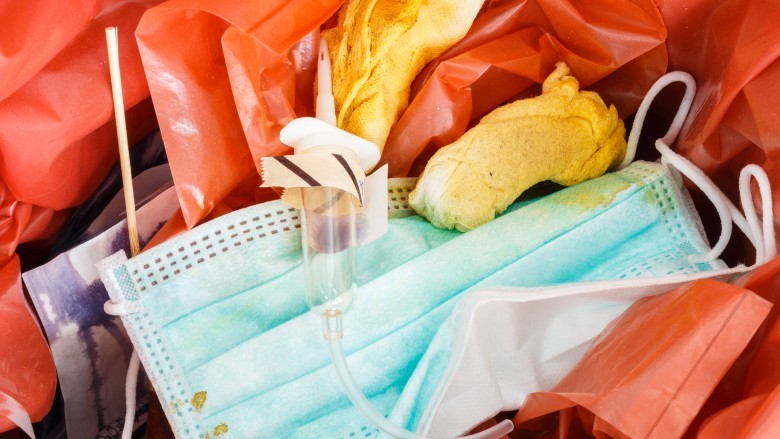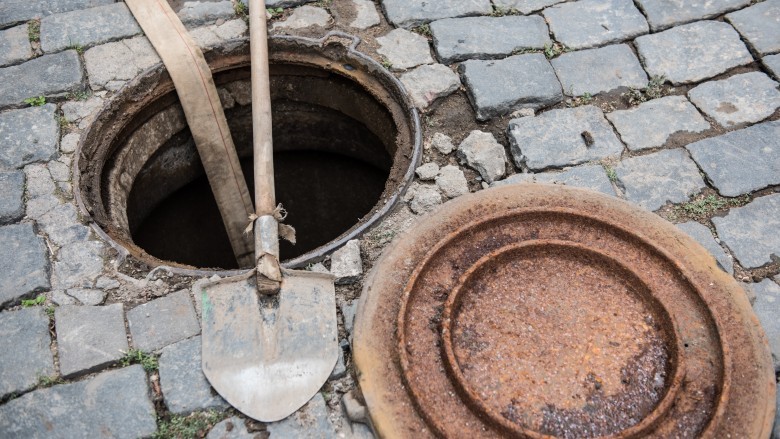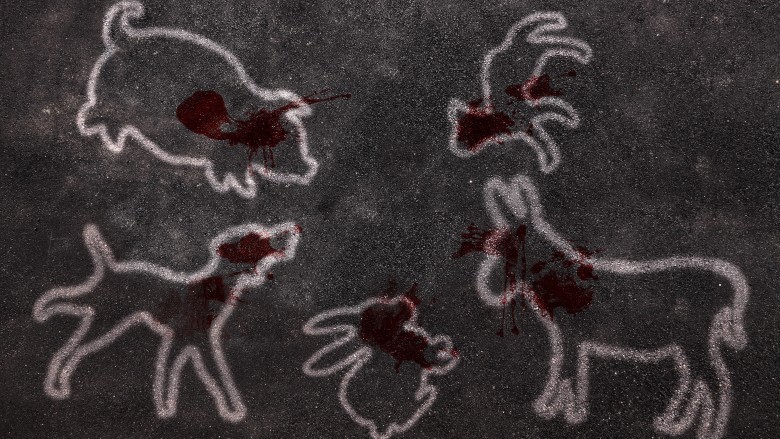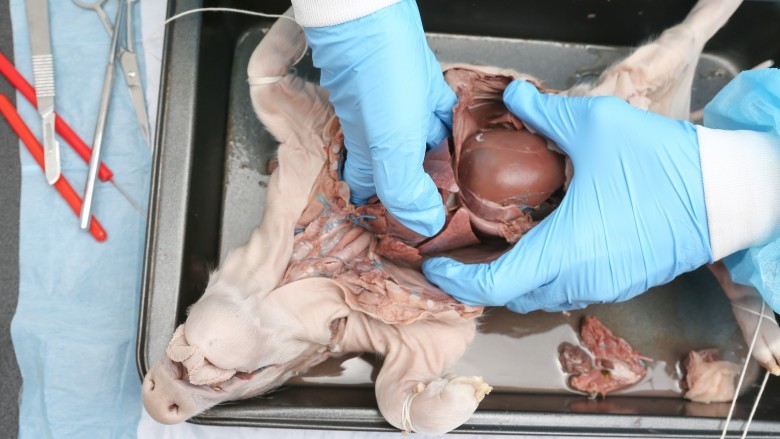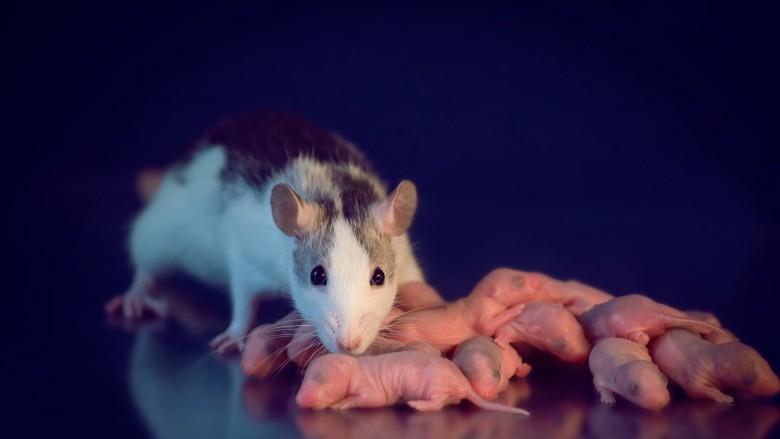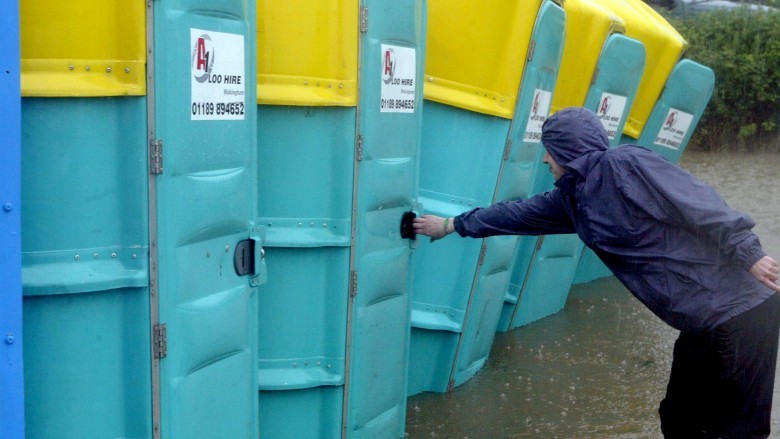Vomit-Inducing Jobs People Do Every Day
Sometimes, your job sucks. Whether you sit at a desk all day, deal with obnoxious customers, or wait on angry tourists at a restaurant, you've probably had a moment or two where you feel like you got stuck with the worst job in the world. So, in those moments of sadness, take a second to think about all the much worse jobs you could have. Hey, somebody has to collect urine, and you should be glad it's not you.
Deer urine collector
It's true, somebody does have to collect deer urine. This isn't just some fetish-y hobby—it's a lucrative business.
Deer urine is used as a hunting lure, but it's not easy to get. Bloomberg interviewed Judi Collora, the woman behind Mrs. Doe Pee's Buck lures. Turns out not all is golden in the golden shower business. It's difficult to predict how much stock you'll have since deer will pee different amounts in different seasons. Need a bunch of lures in January? That's going to be rough, since deer make a lot less urine in the winter. But come summertime, you'll be up to your elbows in deer pee!
Nowadays, a lot of hunting shops don't want to carry jugs of urine. Collora said refrigerated urine is unappealing for stores that sell food and drinks. Understandable, since you probably don't want to accidentally grab a cup of pee when you're reaching for a Bud Light. Well, maybe in that case it wouldn't be so bad.
Though it might be tough work, it does pay. Though Collora won't reveal the "trade secret" of how many gallons of pee she sells, Deerfarmer.com says you'll get $93,440 to $303,680 per deer per year. That'll at least buy you a pot to piss in.
Semen collector
Not a euphemism for a prostitute, a semen collector is an important job in the animal breeding field. To breed cattle, you need sperm, and sometimes, you can't depend on cattle getting together to do it the old fashioned way. That's where a sperm collector gets the bull happy and takes away his valuable fluid. NZFarmer profiled a breeding center in New Zealand to get the inside scoop. People send in their bulls for collection, and hopefully, the bulls go home a little more at ease than before. Robyn How takes her career seriously and prides herself on a job well done.
Though handling bull dongs all day might sound a little silly, it can be dangerous. You're dealing with a horny bull after all, and they aren't known for their gentle touch. ”Having full respect, understanding and appreciation for the bulls is crucial—semen collection is not a job anyone can do," said How. ”We know just by reading an animal, how far we can push things. There's no way any of us could outrun a bull.” How goes on to say that being sweet and patient goes a long way toward getting a good sample. She's dealt with all kinds of bulls, but at the end of the day, the sperm gets collected. The breeding center processes a huge amount of sperm per year, usually around 300,000 samples.
So, if you love animals, but would rather not be a vet or work at shelter, there could be a sperm collecting job out there waiting for you.
Pet food taste tester
Taste tester? That's got to be some kind of a dream job. You'd get to taste pizza, ice cream, or pasta all day? Sign us up!
Sadly, not all tasting jobs are that delicious. For a pet food taste tester, it's a less exciting job. Humans are hired to think up and design new pet foods and then taste the results. Since dogs will pretty much eat anything, it would be difficult to have them fill out a survey of which flavors they found most palatable at the end of a taste test. So, a person has to do it.
Fortunately, a tester doesn't have to eat dog food every day, since a lot of their work goes into documenting and researching food. Then when they do have to eat it, they always take a bite, then spit it out. This way, dog food makers can assure customers that every product is tasty and appealing to canines. You wouldn't want your dog to eat something lacking in seasoning, would you? Thankfully, dog food tasters are there to make sure that never happens.
Medical waste disposal
"When I grow up, I'm going to specialize in disposing medical grade waste," said the one precocious child everyone was scared of. Yes, this one might not be a dream job, but if you want to enjoy modern hospitals, it means somebody has to get rid of all that medical waste.
First of all, anything that touches a bodily fluid at a doctor's office becomes a biohazard. Throw away a Band-Aid that touched your skin? Biohazard. Blew your nose? Biohazard. Cried at the news that your one five-minute walk to the mailbox didn't bring your weight down? That tissue's a biohazard now, friends. All of these materials are put into separate bags or containers and picked up by a medical waste professional. They then recycle as much as they can and sterilize the rest. Even if it's a tiny piece of gauze that has a little blood on it, it needs to be fully cleaned before it can be thrown in the trash to be sure that nothing hazardous spreads.
That means picking up the waste is just step one for a waste worker. Yeah, carrying a box of used needles is the fun part. To sterilize things, all the biohazardous trash typically goes in an autoclave that steam heats it to intense temperatures that bacteria cannot survive. Imagine sitting around a hot room as blood, urine, and mucus get steamed out of garbage. That's some level of hell.
Sewer inspector
A sewer inspector inspects sewers, and it's gross.
But the inspector isn't just diving into pipes and looking at poop. They have to check the integrity of the lines, repair or restore anything that's broken or on its way to breaking, learn how the sewers operate, and make sure everything keeps moving. Of course they also get the fun task of filling out reports and paperwork about their inspecting. Oh and don't forget, they also get to dodge rats!
Though it might be unpleasant, this is a very important job, and these sewer-inspecting heroes keep us all from dealing with our own waste. Thank you, sewer workers. You're doing a brave and important duty for your country.
Roadkill removal technician
What happens to that poor bird or raccoon that meets its end on the highway? A roadkill removal technician sweeps in to sweep the body out. And it's not always birds and stray dogs. The animal you'd be most likely to pick off the road is deer. According to JobMonkey, there are 1.5 million deer killed on the road accidents annually.
As a collector, you spend your days driving about, looking for dead animals. Hey, at least you're on your own schedule, and think of how many books you'll plow through on Audible. Then, when you find a carcass, you have to remove it and deal with the oncoming traffic. Hauling an antelope across a highway by yourself isn't an easy task. Plus, it smells absolutely horrible, and you may end up with roadkill blood and bits all over your collecting ensemble. Ready to sign up?
The bodies are then disposed at specific centers, landfills, or, as JobMonkey says, "in some cases, soup kitchens." Sure, a venison soup sounds fairly luxurious, but when that deer was prebaked on the heat of the freeway, that doesn't seem to be proper food. But this gruesome job can pay well. Some places pay per body, and you can make up to $70,000 a year. Other places pay around $15 an hour. Just make sure you save money for gloves and rope, and remind yourself and your friends to never eat at the soup kitchen.
Fetal pig preserver
Remember dissecting frogs in school? Whether you thought it was cool or horrifying, those frogs didn't just jump onto your table and sacrifice their lives for your scientific education. Somebody had to kill and preserve them. But frogs aren't the only animal you can dissect. A much more popular choice to cut up is the fetal pig.
Ward's Science and other companies specialize in selling everything you need for biology class, including the animals required for dissection. Fetal pigs are popular since they are mammals and share some similarities with human biology. Each pig is preserved in formalin to prevent decomposing, which means it's somebody's job to make sure the pigs are dipped in preservatives properly.
Whether you need a little or a lot of pig fetuses, Ward's Science has you covered. You could buy a vacuum-packed bag of one or buy your pigs by the pail. If pigs aren't for you, you can also order freeze dried frogs or an array of skeletons. With every order, you're employing a person to handle a bunch of dead animals, package them neatly, and send the biological material in the mail. So, if you find yourself at a dissection, don't feel bad for the pig, feel bad for the person who mailed him to you.
Rat breeder
Rat breeder sounds like it's some kind of old timey insult for a New Yorker, but it's a real job.
In our everyday lives, we don't have a lot of use for a plethora of rats. In fact, if a rat happens upon your home, you'll probably spend your time and money screaming and trying to kill it. But the world needs rats. Well, scientists need rats, and several people like them as pets, and that's where the breeders come in. In an article from the American Fancy Rat & Mouse Association's Magazine, Nicole Royer warns new potential breeders of the difficulty of the job. First of all, it's shocking to find out that there are too many people trying to breed rats, but apparently, that's the case. Secondly, rat breeding is much worse than it sounds.
Royer says that you need to make sure your rats are worth breeding. Most rats aren't, so you could wind up with a litter of rats no one wants. Not good. Secondly, you can't get into the game for the big bucks. Most breeders barely break even because of the high cost of treating their rats to a good and proper life. Then, if you think baby rats take care of themselves, you're wrong. Royer estimates it takes about 80 hours of work to care for a new litter. If the mom rat is sick or doesn't feel like raising her babies, which often happens, you get to spend even more time with the tiny rodents.
Lastly, the beautiful moment of bringing life into the world isn't always so beautiful. Rats can give birth any time of the day, and Royer warns of the horrors that can happen. You could witness the mom rat screaming in pain or dying during birth, see a bunch of stillborn or terribly deformed rats, or the birth could be challenging enough to warrant a C-section. Even if everything goes well, the mom could just decide to kill or eat her babies. All pretty terrifying options. But if you really love rats and you hate making money, this might be your ideal job.
Portable toilet maintenance and cleaning
Torn between whether you'd prefer to do Porta Potty maintenance or Porta Potty cleaning? We know, it's a tough choice, but now you can do both!
A pump truck driver is really a jack of all trades in the world of portable toilets. They load the potties onto a truck, deliver them, do repairs, clean the toilets, deal with customers, and complete paperwork for every delivery. The job is pretty physical and introduces you to every kind of human waste. Rumpe Waste and Recycling once listed a job opening for a pump truck driver, and they warn that "Pump Truck Drivers are exposed to extreme weather conditions and unpleasant odors and sights." Unpleasant odors and sights might be the kindest way to describe the life of a portable toilet deliverer. Just taking a pee in a Porta Potty is a mild nightmare, so imagine spending your days carrying them around and keeping the insides clean.
Rumpe Waste and Recycling does say they offer competitive pay, and by God, their workers deserve it.
Rendering plant worker
Working in a factory is rough. Working in any kind of meat butchering or packing facility is fairly gruesome. But grossest of all? Rendering plants.
Here, off cuts of meat are melted down to render fat. Well, that's an oversimplification. First, workers get leftover animal parts and have to sift out any usable meat, which gets turned into pet food (that some poor fool has to put in their mouth). Some of the remains are used to make bone meal, which is sometimes added to animal food, though you have to be careful with it. If you feed bone meal to the wrong kind of animal, it can spread mad cow disease. So, that's part of your job. Anything else is melted down and turned into soap or machine lubricants. That means a part of the factory is devoted to melting down animal fat all day long. Wonder why they don't make a "rendering" scented candle?
Most of the original meat is leftovers from meat packing factories. But that's not all. Rendering plant workers also get to deal with garbage oil from restaurants, expired meat from grocery stores, and the bodies of dead zoo animals. Yes, you could get a chance to sift through a zebra's flesh to see if it could become good bone meal. So, you're potentially covered in animal blood all day and sifting through expired meat, all while taking in the fragrant scent of burning animal fat. These workers have stomachs of steel and are possibly the bravest people on the planet.
